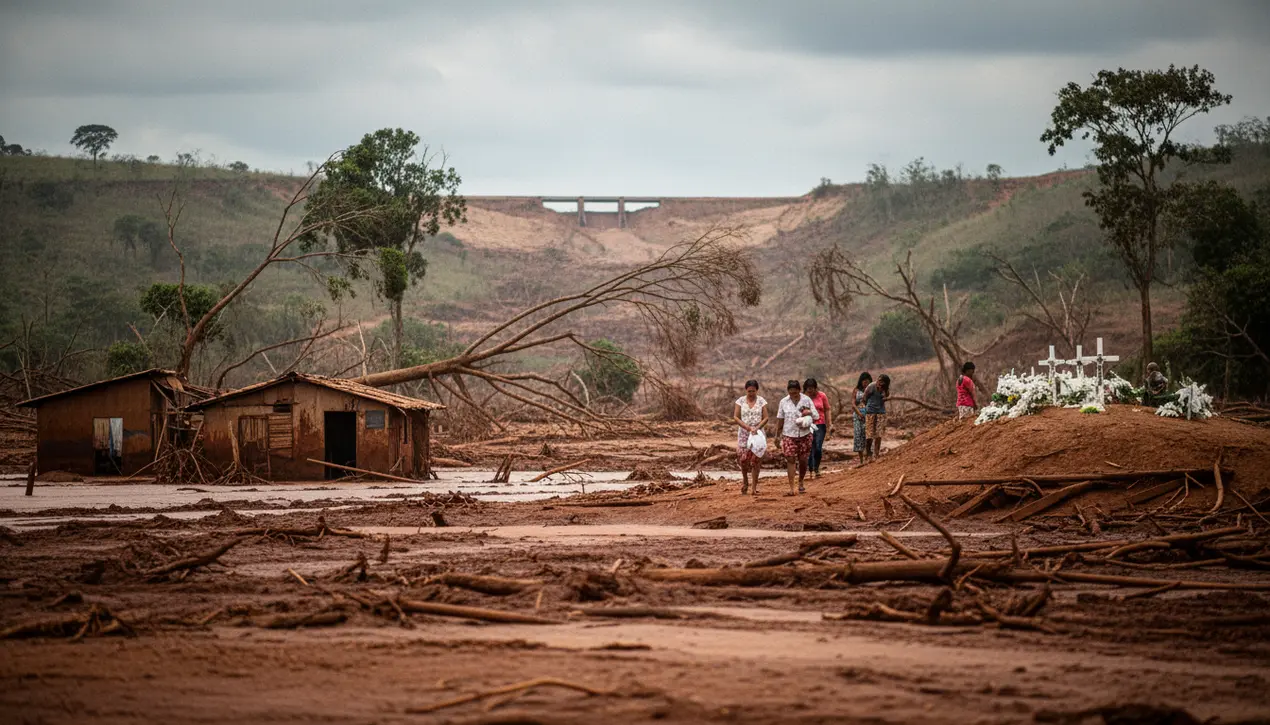
Otheraccidents & disastersIndustrial Accidents
UK Court Holds Mining Firm Liable for Brazilian Dam Disaster.
RA
Rachel Adams
3 hours ago7 min read
In a landmark ruling that sends a seismic shock through the global extractive industries, a UK court has decisively held a multinational mining corporation legally accountable for the catastrophic 2015 dam collapse in Brazil, a human-made disaster that killed 19 people, poisoned an entire river system, and erased hundreds of homes from the map. This isn't merely a legal footnote; it's a watershed moment for corporate accountability, echoing the grim precedents set by tragedies like Bhopal and setting a new, terrifyingly clear benchmark for the ecological and human cost of relentless resource extraction.The collapse of the Fundão tailings dam, a massive structure holding back a tide of iron ore waste, didn't just happen—it was a failure years in the making, a result of the calculated risks and environmental corner-cutting that too often characterize mega-projects in vulnerable regions. As the toxic sludge, a thick, ruddy soup of mining byproducts, surged through the Rio Doce basin, it wasn't just water that was contaminated; it was a lifeline for countless communities, a vibrant ecosystem teeming with biodiversity, now silenced under a suffocating layer of industrial refuse.The 19 lives lost were not abstract statistics; they were fathers, mothers, and children, their stories and futures abruptly terminated by a structural integrity that proved to be a fiction. For the survivors, the destruction of their homes was only the beginning of a protracted nightmare, a forced exodus into a precarious existence where the very water they drink and the land they farmed have been rendered poisonous.This legal victory, hard-won by tireless activists and affected communities, pierces the corporate veil that has historically insulated parent companies in Global North financial centers from the devastating consequences of their subsidiaries' operations in the Global South. The court’s decision establishes a powerful legal precedent, suggesting that headquarters cannot simply outsource both their operations and their culpability.From an ecological standpoint, the long-term data is chilling; studies have shown persistent, dangerously elevated levels of heavy metals in the river sediment, a toxic legacy that will leach into the food web for generations, stunting recovery and posing a continuous health threat. This case forces a uncomfortable but necessary conversation about the true cost of the minerals that power our modern world, demanding a radical re-evaluation of industry practices, from dam construction to community consent.The ruling is a stark reminder that our planet’s life-support systems are not expendable, and that the pursuit of profit must never be allowed to override the fundamental right to a safe and healthy environment. It is a clarion call for stricter international regulations and a more robust, ethically-grounded framework for industrial development, one where the memory of the 19 and the plight of the displaced are not forgotten, but serve as the foundation for a more just and sustainable future.
#featured
#dam collapse
#environmental disaster
#Brazil
#UK court
#corporate liability
#mining
#pollution
#BHP
#Samarco
Stay Informed. Act Smarter.
Get weekly highlights, major headlines, and expert insights — then put your knowledge to work in our live prediction markets.
Comments
Loading comments...
© 2025 Outpoll Service LTD. All rights reserved.